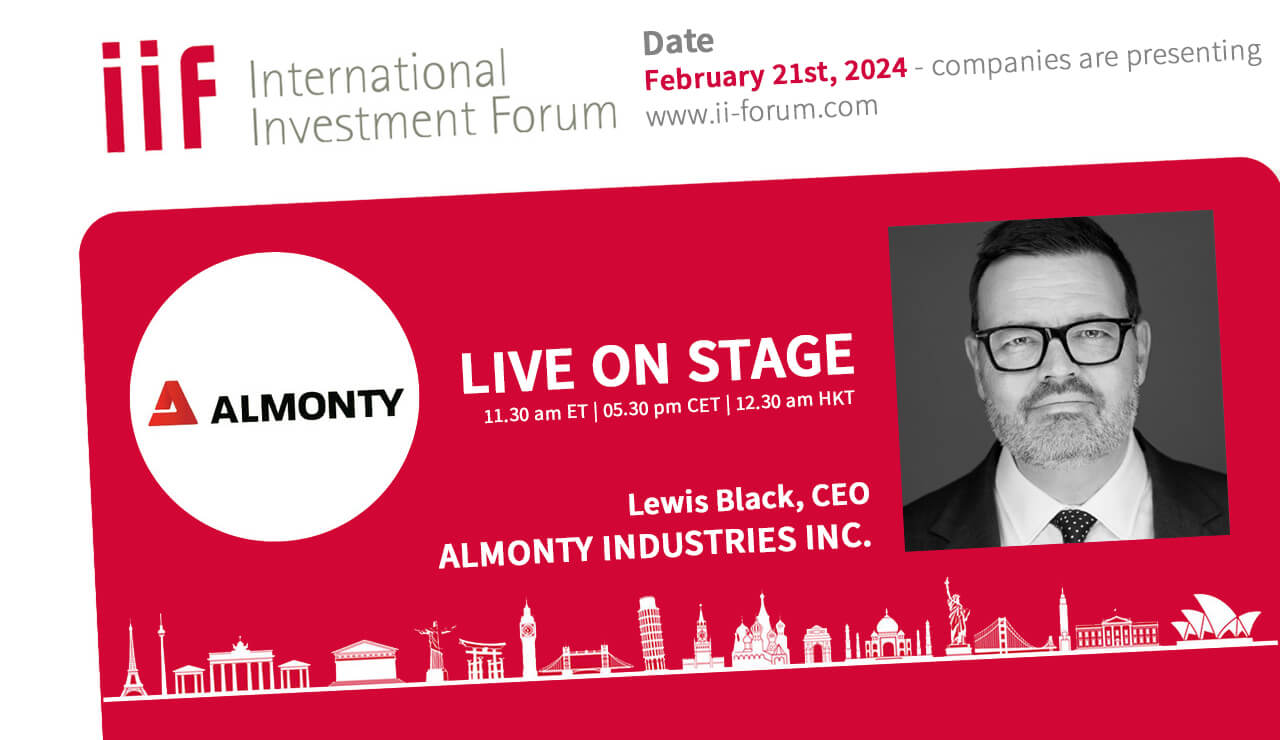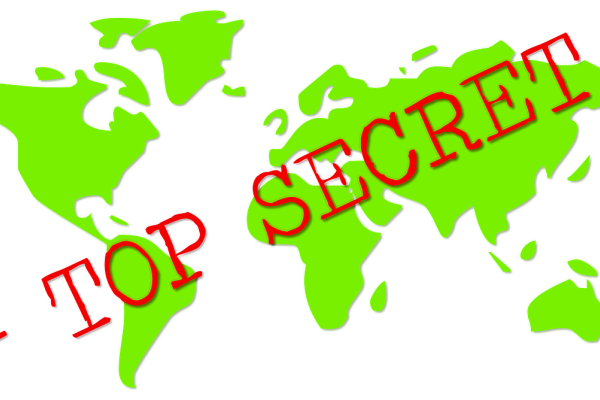February 16th, 2024 | 07:15 CET
Almonty Industries, thyssenkrupp, Rheinmetall: Three metal industry shares in focus
The metal industry contributes globally to the development of various sectors through continuous innovation driven by mining, R&D and technological advances. Tough times lie ahead for thyssenkrupp. During the Annual General Meeting, CEO Miguel López emphasized that energy costs for steel production will account for up to half of total costs. Quo Vadis, Germany, as a business location? So, let's take a look at South Korea, another renowned steel producer. The tungsten mining company Almonty Industries is positioning itself as a pioneer here, aiming to cover 7% of the global market. Its strategy involves mining in democratically governed countries and establishing first-class trade partners such as the US and South Korea. Given the geopolitical tensions, in which 90% of tungsten production comes from China and Russia, investors should analyze Almonty more closely. Meanwhile, Rheinmetall, an arms manufacturer, is enjoying full-order books and, for the first time, is exploring a completely new technology division for its portfolio expansion.
time to read: 8 minutes
|
Author:
Juliane Zielonka
ISIN:
ALMONTY INDUSTRIES INC. | CA0203981034 , THYSSENKRUPP AG O.N. | DE0007500001 , RHEINMETALL AG | DE0007030009
Table of contents:

"[...] China's dominance is one of the reasons why we are so heavily involved in the tungsten market. Here, around 85% of production is in Chinese hands. [...]" Dr. Thomas Gutschlag, CEO, Deutsche Rohstoff AG
Author
Juliane Zielonka
Born in Bielefeld, she studied German, English and psychology. The emergence of the Internet in the early '90s led her from university to training in graphic design and marketing communications. After years of agency work in corporate branding, she switched to publishing and learned her editorial craft at Hubert Burda Media.
Tag cloud
Shares cloud
thyssenkrupp AG in transition: Strategic realignment and price target correction by JP Morgan
Germany is the largest steel producer in the EU and the seventh largest worldwide, with over 2,500 steel grades for various applications, ranging from heavy plates to the finest wire. With a share of 70% primary steel and 30% secondary steel, Germany plays a significant role in the market. The German steel industry creates around 80,000 direct jobs and indirectly influences over 4 million other jobs in the steel industry. These include, for example, the automotive industry, the construction industry, the mechanical engineering industry, the shipbuilding industry, the aerospace industry and the electronics and electrical industry.
Despite the seemingly ideal conditions for thyssenkrupp AG, which has existed in its current corporate form since 1999, the reality surrounding thyssenkrupp is different. For five years now, the shares of the former steel giant have fallen by 62% compared to international competitors such as US Steel or ArcelorMittal, as financial market journalist Holger Zschäpitz aptly describes with a chart in one of his Posts on x.com.
Germany is no longer competitive. At the 25th Annual General Meeting, which took place in Bochum on February 2, 2024, the new CEO, Miguel López, praised the Company, which he claimed had a good starting point with excellent employees, an impressive customer base and outstanding technologies. López has been in office since June 2023. Around 250 thyssenkrupp employees demonstrated outside the venue of the Annual General Meeting (AGM). They accuse the new CEO, Miguel López, of making decisions too arbitrarily. López added two new positions to the Executive Board in late November, against all the votes of the employee representatives. Since then, the relationship between him and IG Metall has been strained. thyssenkrupp recorded losses of around EUR 2 billion in the 2022/23 financial year, mainly due to billion-dollar write-offs in the steel business.
According to his own statements, López aims to get the Company back on track here. The plan involves making the Steel and Marine Shipbuilding division independent within the traditional company with approximately 100,000 employees, with a possible state intervention by the German government.
It is entirely unclear where the green energy sources for the targeted climate neutrality are to come from. In the meantime, thyssenkrupp has brought the federal government and the state of North Rhine-Westphalia on board with around EUR 2 billion in funding. This funding is divided between a share of the investment in the construction of the hydrogen plant and support in the start-up phase to offset the additional costs of climate-neutral steel production.
López stated in the AGM: "The question of how the hydrogen will reach the plant in Duisburg continuously and in sufficient quantities is still far from being clearly answered. And what about the costs? Because in future, energy costs will account for up to half of the total costs of steel production."
Those seeking to answer these open questions are looking to the current Minister of Economic Affairs. The halt of construction on the LNG terminal off the island of Rügen? And the US, which no longer wants to supply more LNG as promised? There are no answers to be found there, just more question marks. JP Morgan lowers its price target for thyssenkrupp shares from EUR 6 to EUR 4.9.
Almonty Industries: On the way to 7% of global tungsten production
South Korea is renowned worldwide for innovative, high-quality, durable steel and steel products. South Korea is ahead of Germany in the international ranking of steel-producing countries. Steel production in South Korea remained unchanged at 5400 KT in December. From 1980 to 2023, the average steel production was 3633.70 KT, with a high of 6405.68 KT in March 2014 and a low of 650.00 KT in February 1980. One of the largest importers of South Korean steel is India and in the EU, Spain, Belgium and Italy. Exports to Italy rose by 53% to 0.93 million tons, while shipments to Belgium and Spain increased by 29% and 75%, respectively.
South Korea is also known for its tungsten mining. Tungsten is an extremely valuable metal due to its unique properties and diverse applications. With the highest melting temperature of all metals, it is ideal for high-temperature applications in aerospace, engineering and electronics. Its extreme hardness and wear resistance make it a preferred material for the manufacture of cutting tools, drill bits and milling cutters in metalworking and mining. Due to its high density, tungsten is used in medicine for radiation protective clothing and shields.
Almonty Industries, an international mining company based in Toronto, plans to reopen the Sangdong mine in Yeongwol, Gangwon Province, South Korea, and begin operations before the end of 2024. According to CEO Lewis Black, this paves the way for mining in a democratically governed country with excellent trade relations. "The beneficiaries of this material will be both the US and South Korea. We have no plans to deliver outside of those two areas," he emphasizes.
An exclusivity that could lead to interesting power shifts in the wake of geopolitical tensions, as China and Russia currently lead tungsten production with 90% of the global market. Black has lofty goals: he wants to cover 7% of the global market with his four tungsten mining projects in South Korea, Portugal and Spain.
The electric vehicle boom could increase demand for tungsten as it supports batteries due to its ability to improve energy density. Development in the battery sector is focused on performance, safety and cost efficiency. Tungsten is also needed in semiconductor production and the manufacture of robotics technology, leading to an expected annual growth of over 10%. Rising military tensions could increase demand for advanced defense technologies, further boosting demand for tungsten.
Anyone interested in learning more about the business strategy of Almonty Industries will have the opportunity to do so at the 10th International Investment Forum on February 21. Lewis Black will present live for 30 minutes (11.30 am ET 05.30 pm CET 12.30 am HKT) and will be available for Q&A afterwards. To register for the digital conference click here.

Rheinmetall secures US Army contract and enters medical technology market with new joint venture
The Düsseldorf-based defense and automotive supplier Rheinmetall is pleased to have full order books with its big brother. The US subsidiary American from Washington, DC, has successfully delivered three prototype trucks for the first phase of the US Army's Common Tactical Truck (CTT) program.
This multi-phase program aims to replace the Army's family of heavy tactical trucks, producing up to 40,000 trucks valued at up to USD 14 billion. The two companies launched a joint venture to participate in this program; their focus is on delivering a modern, tactical truck that improves the safety and security of soldiers. No wonder Lewis Black of Almonty Industries is increasingly turning to the US as a tungsten customer.
Rheinmetall, meanwhile, is positioning itself for the first time in the medical technology sector, also as a joint venture: Rheinmetall Dermalog SensorTec GmbH has received a promising order from a global leader in the healthcare sector. The order concerns a system for detecting distraction and fatigue during final quality control in production. In plain language: facial recognition software, initially used for employee safety. Following a successful launch, the Company expects a potential total sales volume in the low single-digit million euro range, opening up market access to the industrial sector.
The order gives Rheinmetall access to digitalization technology and represents a portfolio expansion beyond the automotive sector. JP Morgan raised its price target for Rheinmetall shares from EUR 420 to EUR 455, while Deutsche Bank analysts see the stock rising to EUR 410 from the original EUR 320.
Despite Germany's leading position in EU steel production and praise for its outstanding employees, thyssenkrupp AG is facing considerable challenges. The biggest risk is energy costs in production, which account for up to half of total costs. The newly appointed CEO, Miguel López, aims for a comprehensive realignment of the Company, including the independence of the Steel and Marine Shipbuilding divisions and possible government investment. The South Korean steel industry forms a central backbone of the country's economy and enjoys worldwide recognition for its innovative strength and high-quality products. In addition, tungsten mining plays a crucial role, as tungsten is a valuable and versatile metal that plays a vital role in various industries. The planned reopening of the Sangdong mine by Almonty Industries can strengthen the tungsten supply to the US and South Korea. The emerging electric vehicle boom and geopolitical tensions are further increasing interest in tungsten as a strategic commodity. CEO Lewis Black will present Almonty Industries' business strategy at the 10th International Investment Forum on February 21, 2024. Rheinmetall opens up new business fields with its first foray into the medical technology sector through the joint venture Rheinmetall Dermalog SensorTec GmbH. The order received for a distraction and fatigue detection system, aka facial recognition software, opens up access to digitalization technologies for the Company. Analysts at JP Morgan and Deutsche Bank see significant growth opportunities for the Rheinmetall share. Three companies and three positions in the metal industry offer potential opportunities for investors.
Conflict of interest
Pursuant to §85 of the German Securities Trading Act (WpHG), we point out that Apaton Finance GmbH as well as partners, authors or employees of Apaton Finance GmbH (hereinafter referred to as "Relevant Persons") may hold shares or other financial instruments of the aforementioned companies in the future or may bet on rising or falling prices and thus a conflict of interest may arise in the future. The Relevant Persons reserve the right to buy or sell shares or other financial instruments of the Company at any time (hereinafter each a "Transaction"). Transactions may, under certain circumstances, influence the respective price of the shares or other financial instruments of the Company.
In addition, Apaton Finance GmbH is active in the context of the preparation and publication of the reporting in paid contractual relationships.
For this reason, there is a concrete conflict of interest.
The above information on existing conflicts of interest applies to all types and forms of publication used by Apaton Finance GmbH for publications on companies.
Risk notice
Apaton Finance GmbH offers editors, agencies and companies the opportunity to publish commentaries, interviews, summaries, news and the like on news.financial. These contents are exclusively for the information of the readers and do not represent any call to action or recommendations, neither explicitly nor implicitly they are to be understood as an assurance of possible price developments. The contents do not replace individual expert investment advice and do not constitute an offer to sell the discussed share(s) or other financial instruments, nor an invitation to buy or sell such.
The content is expressly not a financial analysis, but a journalistic or advertising text. Readers or users who make investment decisions or carry out transactions on the basis of the information provided here do so entirely at their own risk. No contractual relationship is established between Apaton Finance GmbH and its readers or the users of its offers, as our information only refers to the company and not to the investment decision of the reader or user.
The acquisition of financial instruments involves high risks, which can lead to the total loss of the invested capital. The information published by Apaton Finance GmbH and its authors is based on careful research. Nevertheless, no liability is assumed for financial losses or a content-related guarantee for the topicality, correctness, appropriateness and completeness of the content provided here. Please also note our Terms of use.




